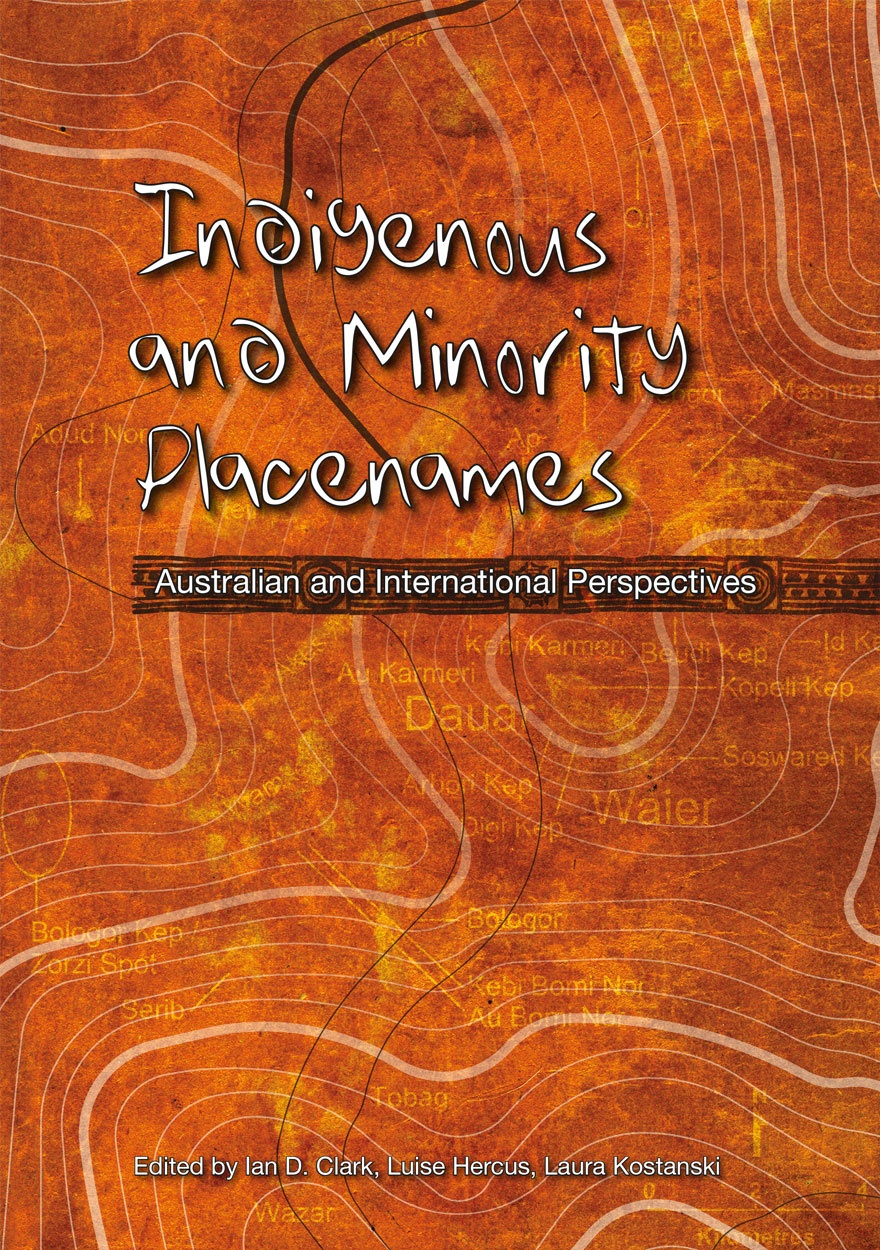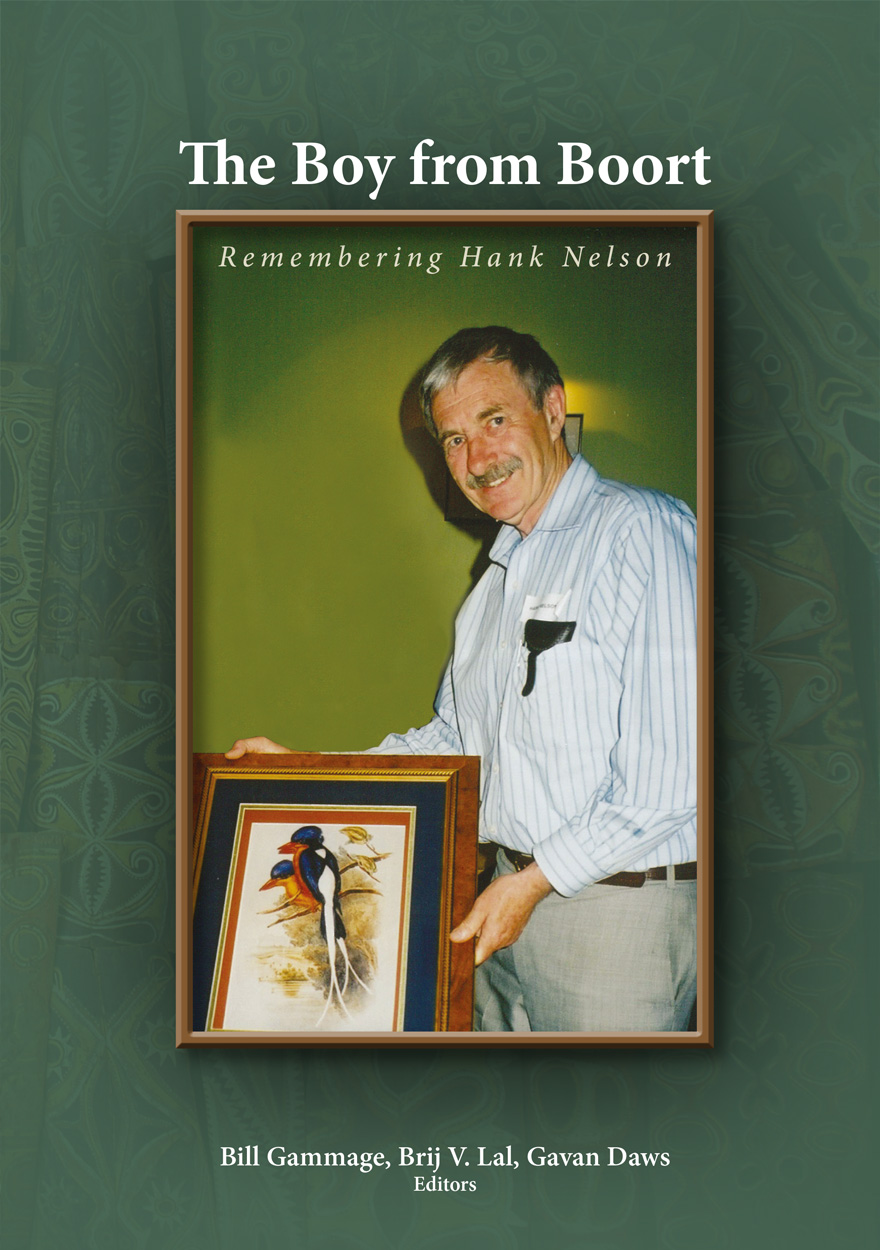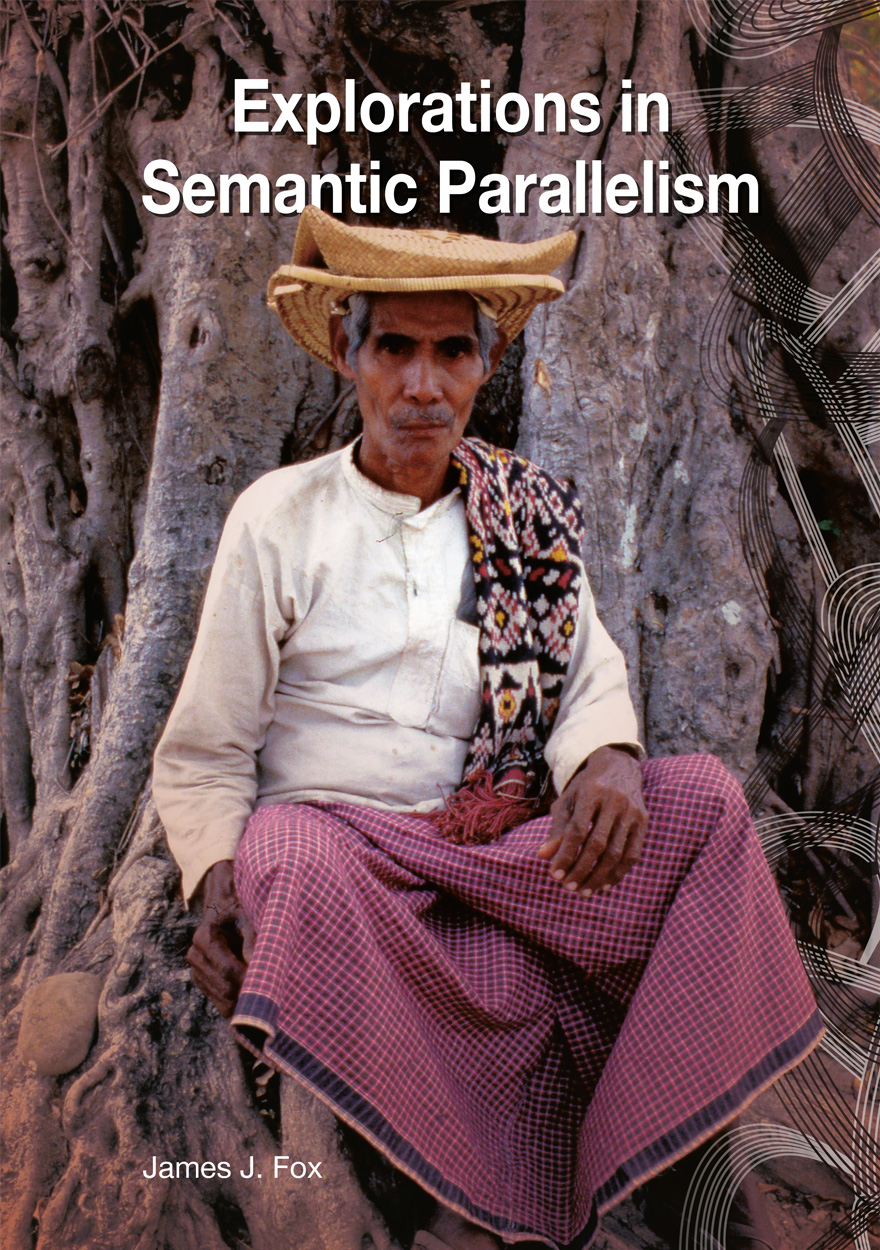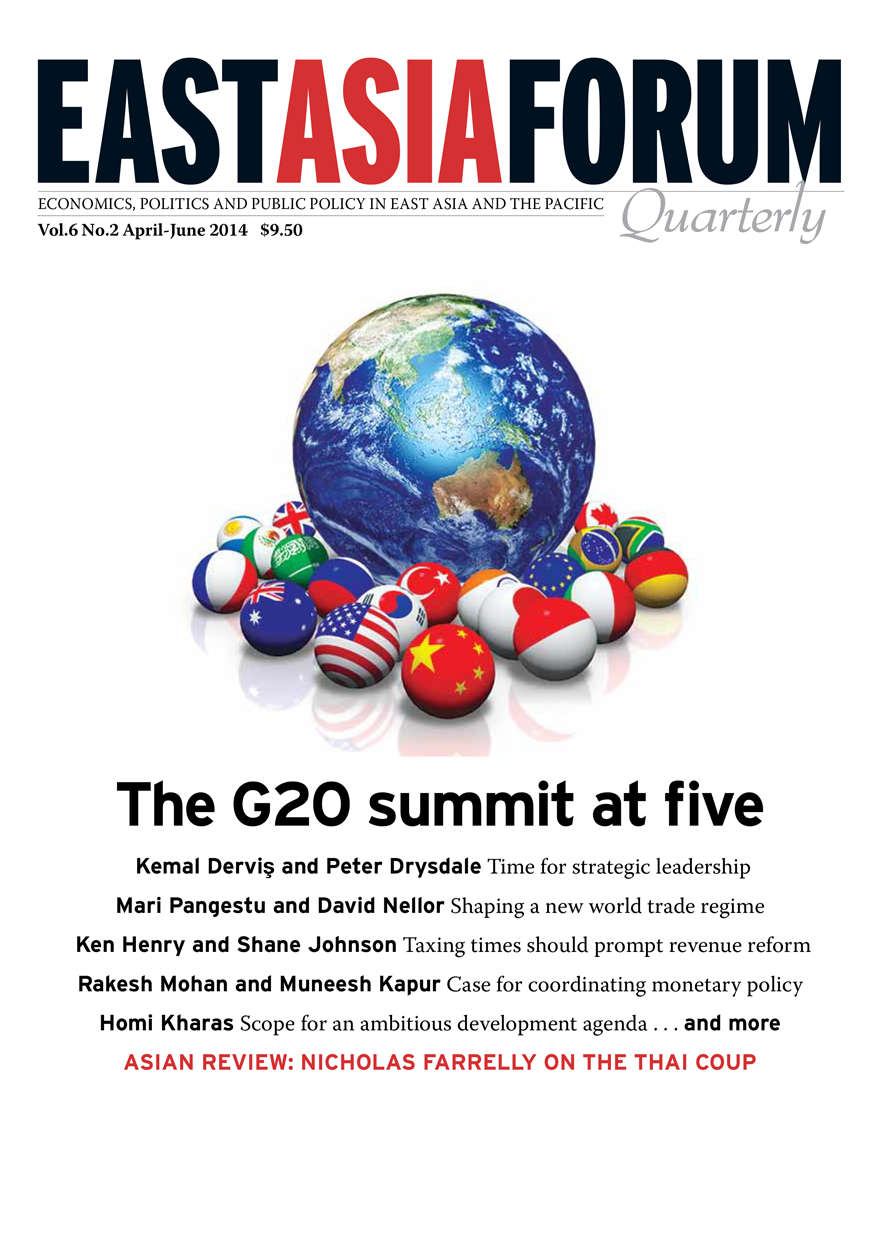Search titles
Displaying results 611 to 620 of 1156.

Indigenous and Minority Placenames »
Australian and International Perspectives
Publication date: August 2014
This book showcases current research into Indigenous and minority placenames in Australia and internationally. Many of the chapters in this volume originated as papers at a Trends in Toponymy conference hosted by the University of Ballarat in 2007 that featured Australian and international speakers. The chapters in this volume provide insight into the quality of toponymic research that is being undertaken in Australia and in countries such as Canada, Finland, South Africa, New Zealand, and Norway. The research presented here draws on the disciplines of linguistics, geography, history, and anthropology. The book includes meticulous studies of placenames in central NSW and the Upper Hunter region; Gundungurra cave names; western Arnhem Land; Northern Cape York Peninsula and Mount Wheeler in Queensland; saltwater placenames around Mer in the Torres Strait; and the Kaurna in South Australia.
For more information on Aboriginal History Inc. please visit aboriginalhistory.org.au.

No Truck with the Chilean Junta! »
Trade Union Internationalism, Australia and Britain, 1973–1980
Authored by: Ann Jones
Publication date: August 2014
When lorry drivers in Northampton slapped stickers on their cabs declaring ‘No truck with the Chilean Junta!’ they were doing more than threatening to boycott. They were asserting their own identity as proud unionists and proud internationalists. But what did trade unionists really know of what was happening in Chile? And how could someone else’s oppression become a means to solidify your own identity? The labour movements of Britain and Australia used ‘Chile’ as an impetus for action and to give meaning to their own political expression, though it was not all smooth sailing. Throughout the 1970s, social movements and unions alternately clashed and melded, and those involved with ‘Chile’ were also caught within the unhappy marriage of the cross-cultural left. This book draws together the events and stories of these complex times.

craft + design enquiry: issue 6, 2014 »
Craft • Material • Memory
Edited by: Anne Brennan, Patsy Hely
Publication date: August 2014
craft + design enquiry is an open-access, peer-reviewed journal promoting and disseminating research excellence generated by and about the craft and design sector. craft + design enquiry investigates the contribution that contemporary craft and design makes to society, establishing a dialogue between craft and design practice and cultural, social and environmental concerns. It includes submissions from across the field of craft and design from artists and practitioners, curators, historians, art and cultural theorists, educationalists, museum professionals, philosophers, scientists and others with a stake in the future developments of craft and design.
Download for free
Not available for purchase

The Boy from Boort »
Remembering Hank Nelson
Edited by: Bill Gammage, Brij V. Lal, Gavan Daws
Publication date: July 2014
Hank Nelson was an academic, film-maker, teacher, graduate supervisor and university administrator. His career at The Australian National University (ANU) spanned almost 40 years of notable accomplishment in expanding and deepening our understanding of the history and politics of Papua New Guinea, the experience of Australian soldiers at war, bush schools and much else. This book is a highly readable tribute to him, written by those who knew him well, including his students, and also contains wide-ranging works by Hank himself. –Professor Stewart Firth, ANU.

Deepening Reform for China's Long-term Growth and Development »
Edited by: Ross Garnaut, Cai Fang, Ligang Song
Publication date: July 2014
The Chinese economy has entered a new phase of development in which sources of growth are not so much dependent upon pure increases in labour, investment and credit expansion, but from productivity improvement, structural changes, technological progress and the benefits from improvement of the social security and welfare improvement. When market functions are fully established to become a main channel for allocating resources, the entrepreneurship will flourish engaging in more innovative activities, workers will move more freely and have more incentives to improve their skills, firms will become more productive through market entry and exit, the economic structure will become more balanced because of the improved resource allocation, and in the end, growth will become more spontaneous and sustainable. In this sense, reforms could deliver ‘dividend’ by raising China’s potential economic growth rates.
For China to confront all the challenges it faces at present, the reforms undertaken now have to be deep, comprehensive and far-reaching in order to succeed in paving the way for China to complete the task of transformation in the long-term. There is no better alternative than deepening the market-oriented reform in advancing the course of China’s modernisation for future development and prosperity and lifting China to the status of a developed economy in the next two decades. The recent China update books have covered the topic of reform from different angles and this new book is another attempt to address this important issue.

Explorations in Semantic Parallelism »
Authored by: James J. Fox
Publication date: July 2014
This collection of eighteen papers explores issues in the study of semantic parallelism — a world-wide tradition in the composition of oral poetry. It is concerned with both comparative issues and the intensive study of a single living poetic tradition of composition in strict canonical parallelism. The papers in the volume were written at intervals from 1971 to 2014 — a period of over forty years. They are a summation of a career-long research effort that continues to take shape. The concluding essay reflects on possible directions for future research.
Explorations in Semantic Parallelism also offers an enhanced epub: a downloadable ebook format with embedded video. Please download using the link below.

East Asia Forum Quarterly: Volume 6, Number 2, 2014 »
Publication date: June 2014
East Asia Forum Quarterly grew out of East Asia Forum (EAF) online, which has developed a reputation for providing a platform for the best in Asian analysis, research and policy comment on the Asia Pacific region in world affairs. EAFQ aims to provide a further window onto research in the leading research institutes in Asia and to provide expert comment on current developments within the region. The East Asia Forum Quarterly, like East Asia Forum online, is an initiative of the East Asia Forum (EAF) and its host organisation, the East Asian Bureau of Economic Research (EABER) in the Crawford School of Economics and Government in the College of Asia & the Pacific at The Australian National University.
Download for free
Not available for purchase

Future-Proofing the State »
Managing Risks, Responding to Crises and Building Resilience
Publication date: May 2014
This book focuses on the challenges facing governments and communities in preparing for and responding to major crises — especially the hard to predict yet unavoidable natural disasters ranging from earthquakes and tsunamis to floods and bushfires, as well as pandemics and global economic crises.
Future-proofing the state and our societies involves decision-makers developing capacities to learn from recent ‘disaster’ experiences in order to be better placed to anticipate and prepare for foreseeable challenges. To undertake such futureproofing means taking long-term (and often recurring) problems seriously, managing risks appropriately, investing in preparedness, prevention and mitigation, reducing future vulnerability, building resilience in communities and institutions, and cultivating astute leadership. In the past we have often heard calls for ‘better future-proofing’ in the aftermath of disasters, but then neglected the imperatives of the message.
Future-Proofing the State is organised around four key themes: how can we better predict and manage the future; how can we transform the short-term thinking shaped by our political cycles into more effective long-term planning; how can we build learning into our preparations for future policies and management; and how can we successfully build trust and community resilience to meet future challenges more adequately?

Global Water »
Issues and Insights
Publication date: May 2014
This book brings together some of the world’s leading water researchers with an especially written collection of chapters on: water economics; transboundary water; water and development; water and energy; and water concepts.

Dharmalan Dana »
An Australian Aboriginal man’s 73-year search for the story of his Aboriginal and Indian ancestors
Authored by: George Nelson, Robynne Nelson
Publication date: April 2014
A Yorta Yorta man’s 73-year search for the story of his Aboriginal and Indian ancestors including his Indian Grampa who, as a real mystery man, came to Yorta Yorta country in Australia, from Mauritius, in 1881 and went on to leave an incredible legacy for Aboriginal Australia. This story is written through George Nelson’s eyes, life and experiences, from the time of his earliest memory, to his marriage to his sweetheart Brenda, through to his journey to Mauritius at the age of 73, to the production of this wonderful story in the present.
For more information on Aboriginal History Inc. please visit aboriginalhistory.org.au.



